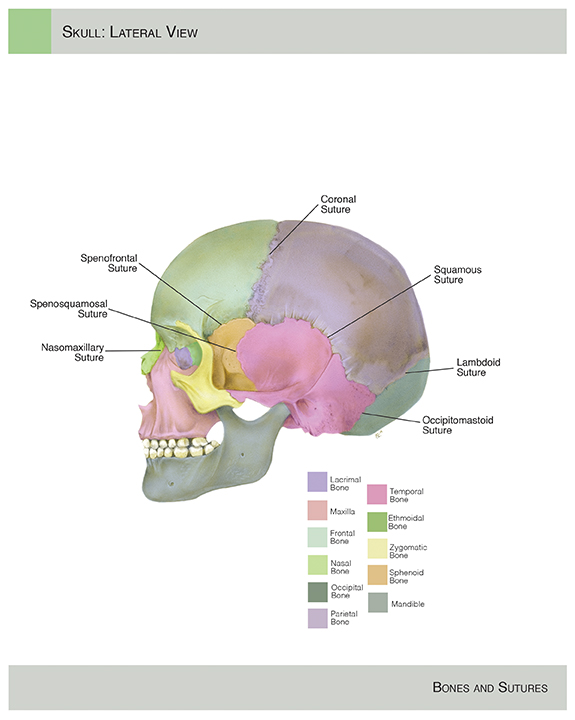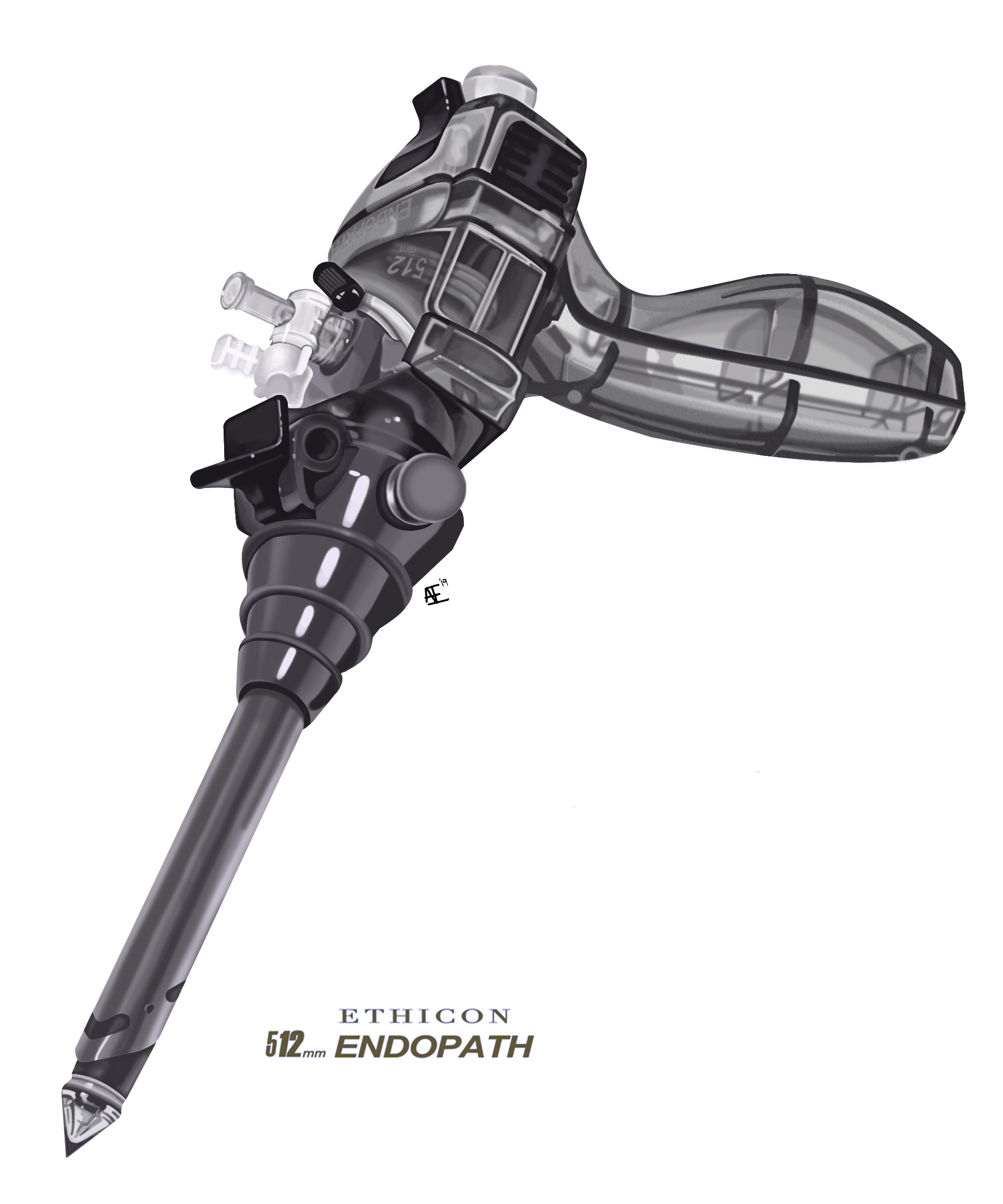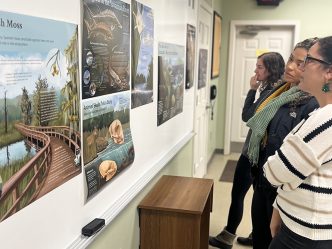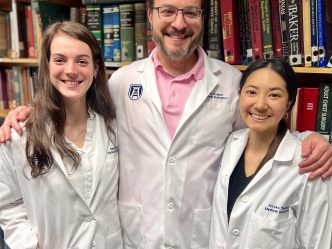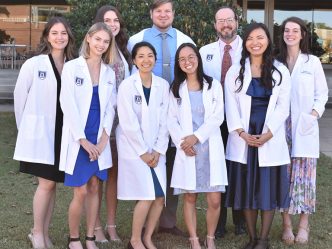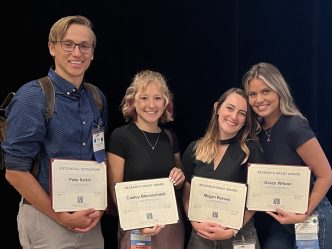Medium: Carbon Dust
Objective: To educate anatomy students on the location and relation of cranial bones and suture lines in a clear and concise methodology.
Medium: Adobe Photoshop
Objective: Presenting professionals in the medical field the use, structure, and function of the Ethicon Endopath endoscopic surgical instrument.
The Medical Illustration Graduate Program within the College of Allied Health Sciences at Augusta University is one of only three such programs in the country.
Completion of the twenty-one-month curriculum in Medical Illustration results in a Master of Science in Medical Illustration degree granted through The Graduate School. Augusta University is part of the University System of Georgia
The program emphasizes anatomical and surgical illustration for print and electronic publication, as well as for projection and broadcast distribution. Because of the importance of good drawing skills, our students learn a variety of traditional illustration techniques during the first year. Computer technologies and digital techniques used to prepare both vector and raster images for print, projection, animation, and multimedia are also extensively integrated into the curriculum. In addition to being skilled artists, medical illustrators must be knowledgeable in anatomy and the health sciences. Our students study communication theory and illustration techniques, and take graduate-level science courses, such as gross anatomy and cell biology, with the medical students.
Through the years, David J. Mascaro collected many outstanding and unique works of art by some of the best artists in both medical and commercial illustration. Max Brödel, Elizabeth Brödel, Gerald Hodge, Bob Demarest, Keith Kasnot, Rebekah Dodson, Russell Drake, Tom Jones, Stephen Gilbert, John Karapelou, Arthur Lidov, Paul Peck, Elizabeth Roselius, Will Sheperd and Bill Westwood are but a few of the artists represented in the collection. David collected not to indulge some personal whim, but to better share with his students his deep appreciation and respect for the craft of illustration.
A gallery that educates, inspires, and motivates—what better learning environment can we provide for the future of our profession? It became our aim to build upon David’s core collection and establish a permanent teaching gallery. In the spring of 2000, the program began a campaign to acquire original artworks from our alumni, the hundreds of talented and dedicated professionals who have earned degrees in medical illustration from our university. This teaching gallery serves our students, faculty, and alumni as an essential educational resource, a wellspring of inspiration, and a challenge to always strive for excellence.
For the past several years, the Robert B. Greenblatt, MD Library has been privileged to host the annual University of Georgia and Augusta University Student Scientific & Medical Illustration Exhibition. This exhibition featured the scientific illustrations by UGA undergraduates as well as illustrations created by students in the Augusta University Medical Illustration Graduate Program in the College of Allied Health Sciences. The UGA students’ scientific illustrations detailed and clarified the natural world. The meticulous medical illustrations by the Augusta University students informed and enlightened viewers about the human body in health and disease.
Due to the COVID-19 pandemic the Greenblatt Library has been closed since March; thus this year’s on-site exhibition did not take place. However, due to the diligence of the Medical Illustration Graduate Program, an online exhibition features the artwork of the program’s graduate students. The showcased artwork includes the medium used by the students to create their illustrations and the objectives of each piece. An additional highlight of the online exhibition, in comparison to past on-site exhibitions at the Greenblatt Library, is information about each graduate student artist. Please take time to view and enjoy this year’s online stage of the Student Medical Illustration Exhibition 2020.
 Augusta University
Augusta University
